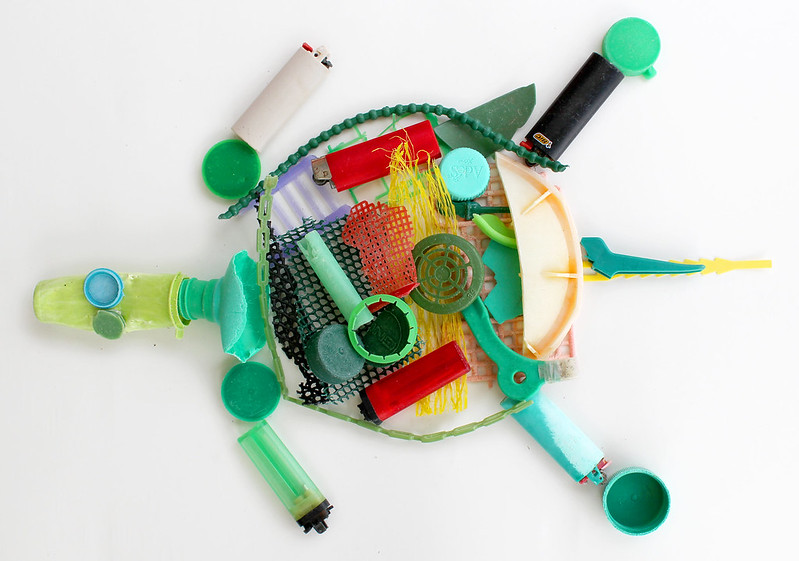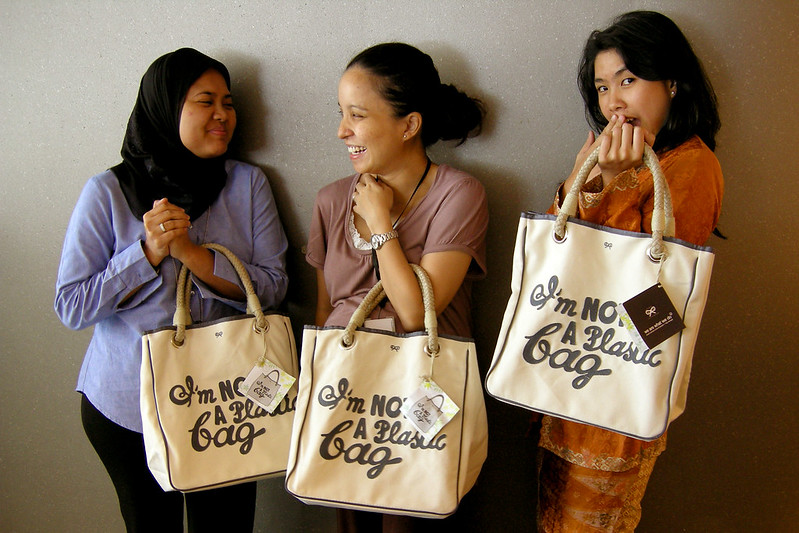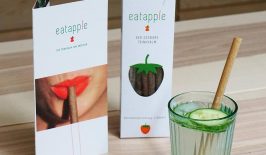Around the world, a massive one trillion plastic bags are used every single year. And then there are all the plastic bottles, plastic packaging and other one-use plastic products that end up in landfill on earth and floating in our seas. The problem is overwhelmingly huge, but it’s one that we can all do something about.
Producing plastic uses valuable organic resources such as coal, natural gas and of course crude oil. Many plastic products are used only once before being thrown away, approximately 9 per cent of the massive 8.3 billion tons of plastic that have been produced since the 1970s. The huge patches of plastic waste floating in our oceans are a clear sign of the negative impact that this excess plastic waste is having on land and on sea.
The issue of plastic pollution is far too complex for there to be one simple solution, and ideally we should approach it in a variety of different ways.
As consumers we can try to avoid the consumption of plastic products (particularly one-use products), and try to use alternative materials whenever possible. On a larger scale, communities also need to ensure that waste is managed responsibly, and that effective recycling systems are in place.
Industry and corporations should also be held to account by corporate social responsibility programs which enforce a reduction of plastic usage and waste in their supply chains, as well as the introduction of recycle and take-back schemes for their plastic products.
And even higher up, a huge amount of power lies in the hands of politicians and lawmakers, who have the power to make all kinds of nationwide environmental commitments, such as improving waste management and introducing taxes on single-use plastics.
While a comprehensive solution involves individuals, businesses and lawmakers coming together to tackle the problem on multiple levels, there a huge number of practical small steps you can take to have a big impact.
1. Avoid one-use plastics
So many of the plastic items we use in our daily lives are used just once before ending up in the bin: plastic bags, plastic wrap (clingfilm), plastic cutlery, coffee-cup lids and straws. Take a note of the times that you use these kind of products and and replace them with reusable versions next time. Taking a fabric shopping bag with you don’t have to resort to plastic, carry a thermos flask for your coffee or try to chose places reusable coffee cup systems, pack your own cutlery and politely turn down the offer of a plastic straws in your drink. It might seem difficult at first, but once you start it soon becomes second nature.
When at the supermarket, buying fresh produce rather than processed items usually means that you naturally end up with less plastic in your basket. Or even better, grow your own fruit and veg and don’t just cut costs but also reduce the CO2 and water footprint of your food by removing the need for transportation and refrigeration.
Try to avoid using plastic film in the kitchen by covering leftovers in paper wrap or storing them in glass jars or ceramic containers instead. When eating out, bring your own reusable container for take-away food or restaurant doggy bag, rather than using styrofoam. It might feel a bit strange at first, but the restaurant owners will probably be pleased that you’ve taken the initiative.
2. Stop buying bottled water
According to the Guardian, one million plastic bottles are bought around the world every single minute. Avoid buying bottled water wherever you can by carrying your own refillable bottle, and be on the look out for places where you can top up with water for free.
3. Give up your gum and your smokes
The base of chewing gum is a polymer derived from fossil fuels – the same material that is used in countless industrial processes. Just like any other plastic, it’s great for making long-lasting products, but it also means that it doesn’t decompose. As we all know, gum is often disposed of irresponsibly, eventually ending up in rivers, seas and oceans. While there are projects out there that are scraping up the gum and turning it into other plastic products, it’s better just to kick the habit altogether.
Plastic lighters are something that have been found in the stomachs of sea creatures, so switch to a refillable lighter or matches instead. And did you know that cigarette filters are made of cellulose acetate, a form of plastic? How about quitting smoking altogether while you’re at it?
4. Remove microbeads from your routine
Many personal care products – facial scrubs, toothpaste and soaps – contain miniscule plastic beads that are small enough to slip through water-treatment plants and end up in the oceans being ingested by fish, birds and other wildlife.
Identifying individual products that are microbead-free is complex because companies don’t write ‘microbeads’ on their ingredients lists. The website of Beat the Microbead – an international campaign against microplastics in cosmetic products – can help. They have lists of products that are free from microbeads and also offer a ‘Beat the Microbead’ app that you can download to check the product list of any products you might be about to buy.
5. Buy, lend and borrow
New products often come covered in layers of plastic packaging – especially electronic gadgets. Try to cut back on buying things new, by checking out secondhand options such as online marketplaces or local neighbourhood sales. Or get involved in the sharing economy, ditching outright ownership in favour of borrowing or loaning goods and services, simultaneously helping your pocket and the environment.
6. Put pressure on companies
Our everyday habits and the decisions we make about what to consume can obviously make a difference, but corporations and industry obviously have a much larger footprint – and reducing it can have a far larger impact. If you think a company could be smarter about its packaging, let them know. How about writing a letter, sending them a tweet, or taking your business elsewhere, by giving your money to a more sustainable competitor (and letting them know about it).
7. Support projects that are tackling plastic pollution
Get involved with projects that are doing their bit to reduce, recycle or remove plastic waste from our natural environment. Like the Take3 initiaive, which encourages you to pick up three pieces of plastic waste every time you visit the beach, and encourage others to do the same. The Plastic Pollution Coalition is another great source of educational resources and tips on how to take practical action, build up a movement and maybe make your own town plastic-free.
The 5Gyres website also has a huge host of different resources for how you can try and engage lawmakers on the issue – including an interactive map where you can find out where polystyrene bans have passed or are pending and where you can get involved to push the issue forward.






